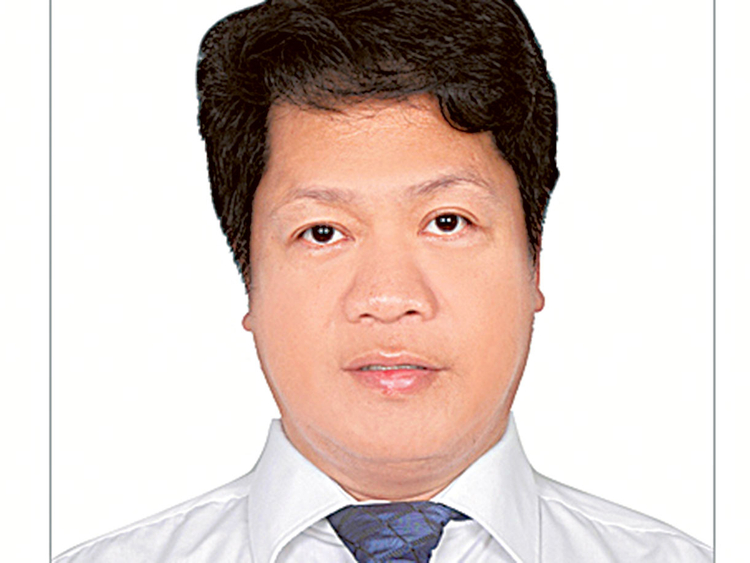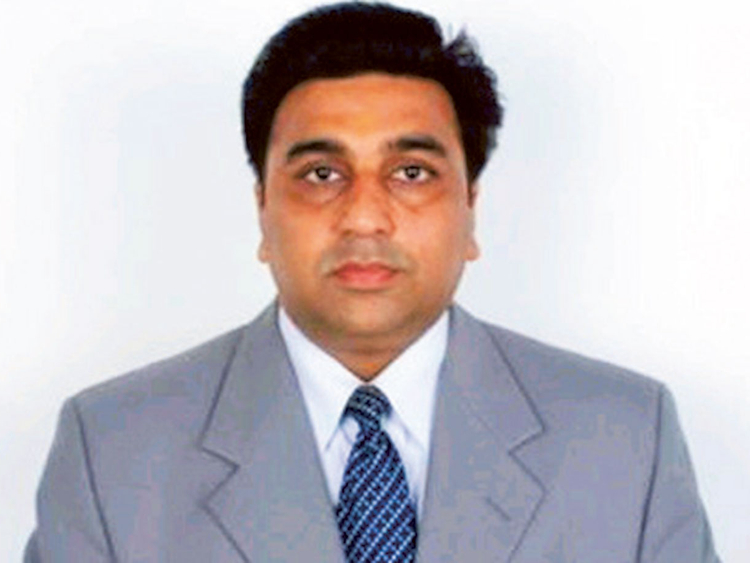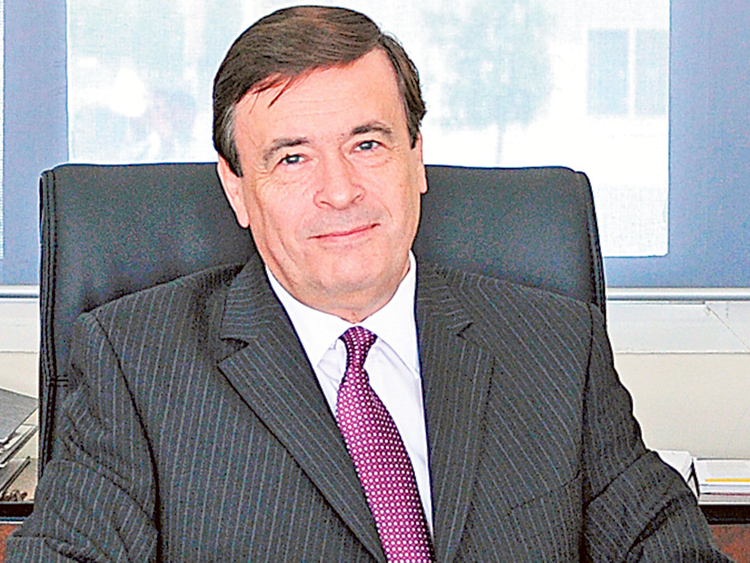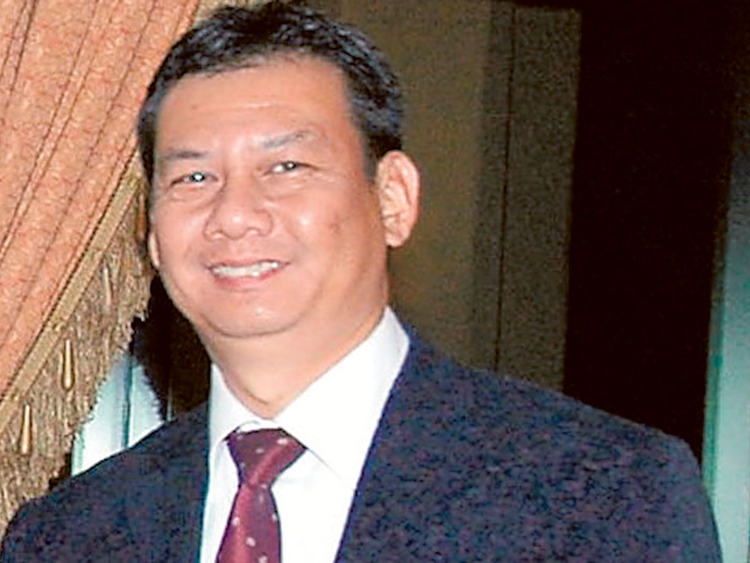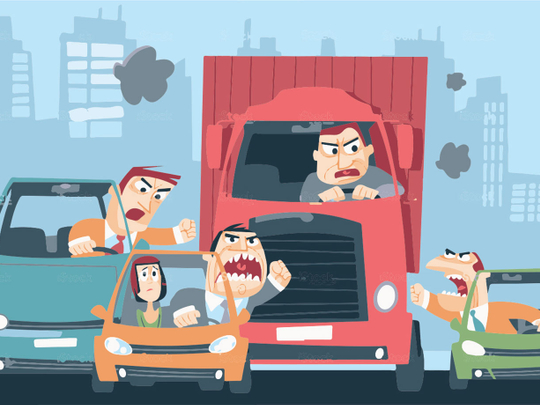
Reckless driving has been a constant topic of discussion in the UAE. According to a Gulf News report published in August, just the first half of 2016 witnessed 112 deaths and 1,037 injuries in 1,472 traffic incidents. This is 45 per cent higher in comparison to the statistics from the same period in 2015. Gulf News readers have written about this issue many times and two suggestions have come forth on various occasions: installing speed governors on all vehicles and providing behavioural therapy to traffic offenders. Will these solutions work? We speak to readers and a specialist to find out.
Readers speak: What’s the solution?
Sebastian Tan, a Singaporean senior manager based in Dubai, is of the opinion that speed governors would be beneficial for all motorists on UAE roads.
He said: “Speed governors are a good idea. I drive every day and encounter reckless drivers every time I am out on the roads. I feel that trucks and minibuses should not be given leeway to drive on the fast lanes. I have noticed in Dubai that these motorist drive in the outermost lane all the time. So, if a speed governor was installed on these vehicles, it would be one way to cut down reckless driving. The speed limit should be set and forcefully implemented. Despite the current implementations, people are still being reckless.”
Aisha Al Janahi, an Emirati senior social media specialist based in Dubai, does not think either of the suggestions would work. The reason? She is convinced that people won’t care about the therapy sessions and treat it like a chore, whereas the speed governors won’t help because many people “don’t have control over their cars anyway”.
She said: “What we need is proper awareness. Once the authorities had awareness videos, which aimed to make people aware of the consequences of reckless driving. One of the videos showed a mother talking to her son on the phone, saying she will be home soon. And as she is speeding, she has an accident and dies. Seeing such a video moves you. It touches your heart and it reaches out to people. Instead, if you limit their speed or ask them to attend therapy, not everyone will care. People are constantly on social media. The authorities need to use these channels to reach them. Make it trend, and create a hashtag that catches the attention of web users. People won’t take your advice if you give it to them straight away. Teach them indirectly, use reverse psychology.”
Albert Gayo, a Filipino business owner based in Sharjah, is in favour of behavioural therapy. In his opinion, “fines are not enough” and motorists need a constant reminder of the consequences of their behaviour on the roads.
He said: “Therapy is a wonderful idea. It will remind traffic offenders of their responsibility to be good drivers. If they go through these sessions often, accidents will reduce. The therapy sessions should cover updated information of traffic rules as they might be changing or new rules might be implemented and some people may not be aware of them, especially people who have been driving for some time. Secondly, the therapy sessions need to help motorists separate their problems at home or work from their driving. A lot of the people that go out and drive have a lot of issues on their mind and in the process, they forget that they’re on the streets. They need to be reminded that they are not only responsible for themselves, but for the lives of other motorists on the road, too.”
Amitabh Tewari, an entrepreneur based in Dubai, works with Global Positioning System (GPS) technology. In his opinion, speed governors are not a solution. He blames people’s behaviour on the roads for accidents and thinks that therapy sessions could work.
He said: “If you install speed governors, or something that inhibits speed, it infringes on one’s driving. Speed is just a contributor, not the main issue. There is a lack of knowledge and the basic system requires improvement. Highways should have exits that are more clearly marked and consistent traffic management is needed. Driving institutions could make behavioural therapy mandatory and give classes or lectures on the consequences of reckless driving.”
Tewari says that driving institutes have become commercialised and he is concerned that the idea of behavioural therapy, though good, could also be used for commercial purposes. However, he hopes that the suggestion could be taken into consideration as people on the road sometimes behave aggressively or can be “very hyper”.
He said: “People come to the UAE from different countries around the world and have different experiences. Road rage is a global phenomena.”
An expert’s view on both suggestions
Gulf News spoke to Robert A. Hodges, Chief Operating Officer at Emirates Driving Institute, about the feasibility of both suggestions and whether they would be successful in the UAE.
Is it possible to install speed governors on all vehicles?
“Technically and theoretically, it is possible to fit speed governors on all vehicles, but the sheer volume of vehicles would probably make this process unviable and therefore prohibitive. Consideration should be given to the fact that altering a vehicle’s engine management unit or other components would almost certainly render the vehicle manufacturer’s warranty null and void. Another fact is that it is relatively simple to ‘de-restrict’ a vehicle, which has been fitted with a speed governor; in some cases taking only a few minutes. Also, at what speed would a speed governor be set — 100kph or 120kph? How would you stop someone speeding at 95kph in a 60kph area or in a school zone? A huge number of serious injuries and deaths are caused in city streets, nowhere near the highways and higher-speed roads. Speed restrictors are not a very sensible idea except for certain classes of vehicles.”
Are speed governors a good option to restrict drivers from speeding?
“Not really, it is too punitive a method and as such, is not used in any country in the world. It is not considered a ‘best practice’. Better driver education, harsher fines and increased black points would help to reduce speed to some extent, and the best option would be to have more police vehicles to pull speeding drivers over and arrest the lawbreakers. Using too many speed cameras is not having a great enough effect on speed reduction because the ‘crime’, that is speeding, is detached from the punishment of fines and black points. Being stopped, booked or fined out on the road is a very definite way to convince drivers to obey the law. The fines for speeding also need to be increased. The black points issued for each speeding offence should also be increased, and instead of these black points only lasting for a year, they should last for three years, with a maximum of 12 black points allowed before the driver’s licence is suspended. It is at this point that we can look at re-training.”
Is behavioural therapy an option for motorists in the UAE?
“Yes, behavioural therapy would be a good option in the UAE, but not for each and every offence. It is probably better for an offending driver to have to take re-training or therapy if they become a ‘repeat offender’, or someone with two or more offences. The type of behavioural therapy mandate to be taken should be on a sliding scale of duration and content, cost dependent on the severity of the driver’s offences. If, after taking behavioural therapy sessions, the driver then goes on to commit another offence within a year, he or she should lose their driver’s licence for six months or a year. A sliding scale can also be applied to the suspension or loss of driver’s licence and if the offences are severe, then the driver’s licence should be cancelled and withdrawn. The offender would then need to attend several sessions of intensive behavioural therapy and training and then go through the whole process of tests in order to gain a new licence. The road test also will need to be of an extended duration and of increased pass-standard. This process must be enacted to any relevant offender irrespective of ethnicity and with no soft-options allowed, otherwise the serial offenders will simply carry on flouting the law.”
Is behavioural therapy successful in other countries?
Behavioural therapy is part of Western ‘best practice’ and is used in many countries with a high degree of success, in combination with fines, black points and licence suspension. In some countries, first-offence speeders are offered a half-day training course, which enables the offender to escape black points and the subsequent fine, but the offender has to pay an expensive charge to attend the course. In other countries, there are a range of training and behavioural therapy courses available, dependent on the nature of the driving offence and the regularity with which a driver offends. In some countries the more serious offenders are also required to undergo community service work as a substitute for imprisonment or complete loss of driver’s licence.”
Speed governors not practical in the UAE, federal official says
Abu Dhabi: Installing speed governors in all vehicles in the UAE to control reckless driving is not practical, according to a senior official. “It cannot be made mandatory in the UAE due to several practical reasons,” a senior federal government official, who did not want to be named, told Gulf News.
A major section of the society — motorists — will resist such measures to control speeding, he said.
The official said behavioural training, like asking people to do some sort of social or community work, initiated for reckless drivers a few years ago, was discontinued as it was not effective. However, many effective measures are currently in place to discourage and punish offenders.
There is a provision to revoke the driving licence of serious or frequent offenders. They could be banned from driving up to three months. Their cars could be impounded for a month. Recently, the Abu Dhabi government cancelled the 50 per cent discount given on traffic fines.
“We believe that the punishments stipulated in the UAE Federal Traffic Law in the UAE, are more than enough to deter reckless driving and hence, there is no need for further measures like behavioural training,” the official said.
- By Abdulla Rasheed, Abu Dhabi Editor
In Numbers: Discover the leading causes of road injuries and deaths in the UAE
Top 9 causes of traffic accidents, death and serious injuries in the UAE in 2015:
1. Sudden swerving/lane changing
2. Misjudgment
3. Not enough distance to the car in front
4. Entering road without checking if clear
5. Speeding
6. Lack of attention
7. Jumping red lights
8. No lane discipline
9. Miscellaneous
21% of all fatalities are linked to incorrect changing of lanes or ‘lane swerving’ (according to data released by the MOI), as well as 19% of all accidents and 20% of injuries. This makes it the number one killer on UAE roads.
One in three motorists in the UAE admit to being distracted while driving.
According to joint research released in 2014 by global insurer Zurich and RoadSafetyUAE.com.
Top 10 distractions for UAE drivers:
1. Behaviour of other drivers (59%)
2. Passengers speaking to you (44%)
3. Changing the radio (40%)
4. Adjusting the air conditioning (34%)
5. Poorly behaved children (34%)
6. Complex road systems (33%)
7. Road signs (32%)
8. Using a mobile phone (30%)
9. Reading maps/sat nav (25%)
According to the World Health Organisation’s (WHO) global status report on road safety 2015, the UAE witnessed 10.9 road deaths per 100,000 population.
The Ministry of Interior’s traffic-safety goal is for the UAE to achieve a reduction in road deaths to three for every 100,000 people by 2021. The long-term goal is to achieve zero fatalities on the road by 2030.
In Dubai, police recorded a drop in traffic-related deaths from 177 people in 2014 down to 166 in 2015. According to previous reports, reckless driving emerged as the main cause of 3,078 road accidents.
According to the Abu Dhabi Police, 63 per cent of the road accidents in the first nine months of 2015 were caused by young drivers. The same age group accounted for around 34 per cent of all deaths in road accidents!
Traffic and Patrols Directorate at Abu Dhabi Police arrested 1,837 drivers on the Abu Dhabi roads over the first four months of 2016, for driving their vehicles at dangerous speeds exceeding 200 km/h.
Road accidents and injuries are costing Abu Dhabi Dh3.55 billion/year.
Sources: Ministry of Interior, Road Safety UAE, WHO



